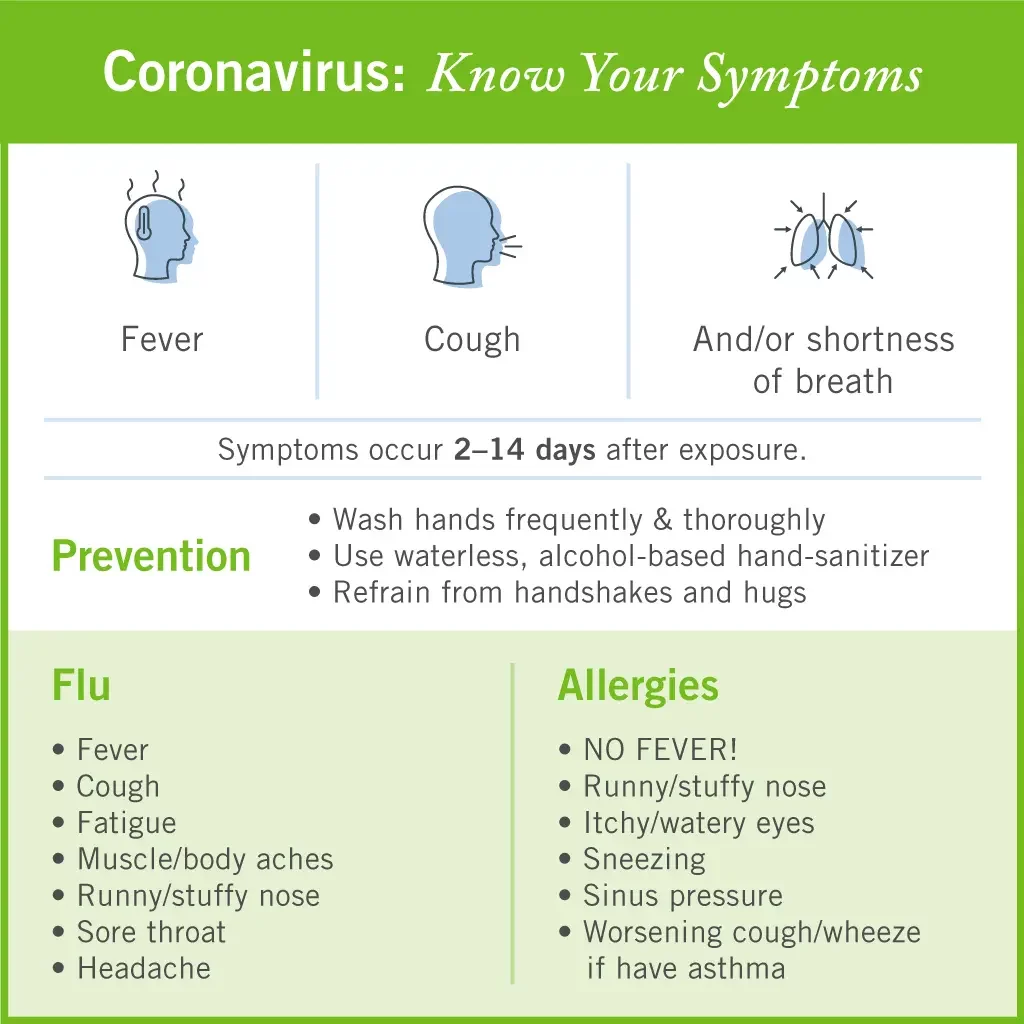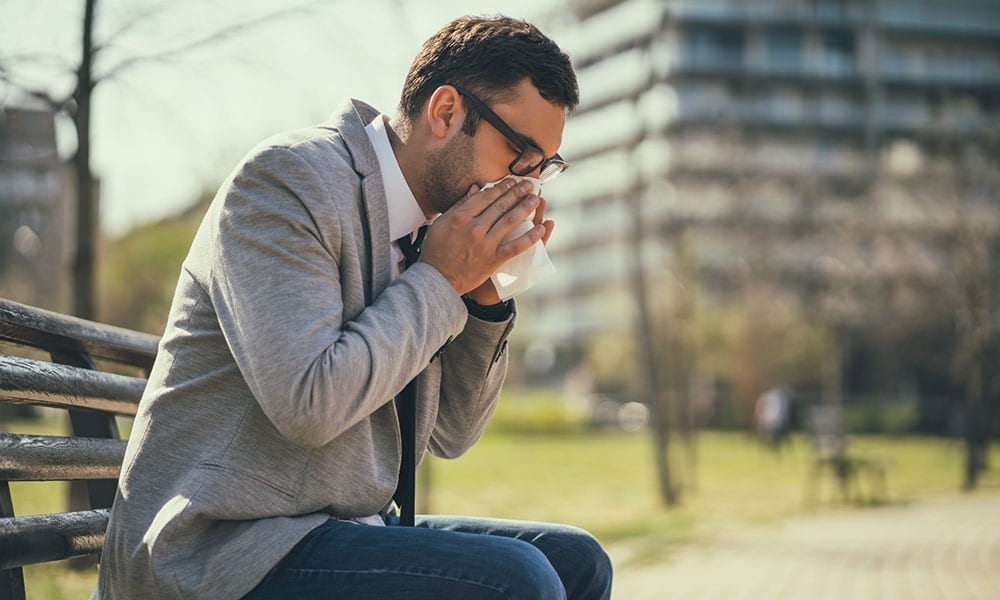Coronavirus (COVID-19) has very similar symptoms to the flu, like fever and cough. But, patients with the flu often experience additional symptoms like a runny nose, nasal congestion, sore throat, headaches, muscle/body aches and fatigue (overall tiredness). With allergies, on the other hand, you will NOT have a fever. But, allergies can cause a runny nose, nasal congestion, sinus pressure, sneezing, post-nasal drip, itchy/watery eyes and worsening cough/wheeze for those with asthma.
Symptoms of Coronavirus
The primary symptoms of Coronavirus include fever (100.4 or higher), cough and shortness of breath. Patients usually begin experiencing fever and cough first, then several days later develop an acute or rapid onset of shortness of breath and difficulty breathing. There has been very little wheezing, nasal congestion, runny nose or sinus pressure reported. Symptoms occur within 2-14 days after exposure to this virus. Coronavirus can be transmitted within six feet of infected patients through their cough or sneeze. Patients who are at particularly high risk for severe Coronavirus symptoms are the elderly population and those with a weakened immune system.
How to avoid the Coronavirus
Ways to help decrease the spread of Coronavirus include good hand hygiene, avoiding those who are sick, wearing masks and gloves while in a large crowd, refraining from handshakes and hugs and limiting travel as much as possible. Good hand hygiene includes washing hands for at least 20 seconds with warm soap and water or using waterless alcohol-based hand sanitizer.
Most patients have fairly mild symptoms and only need a lot of rest, fluids and over the counter medications. But, those who develop more concerning symptoms like shortness of breath and difficulty breathing require treatment.
Here’s a comprehensive look at the symptoms you need to look for:

If you are experiencing fever and cough or shortness of breath, please either call our clinic or utilize the Roper or MUSC Coronavirus telehealth screening resources.
For revolving information on the Coronavirus/COVID-19, please follow the CDC here.




